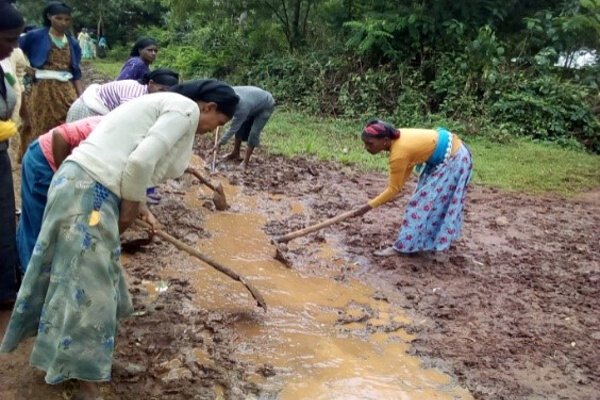Addressing the Problem of Malaria in the Goro Woreda, Ethiopia
Malaria potentially leads to death in both pregnant mothers and children under five. It’s a particular problem in the Goro Woreda, with rates four times higher than the average in Ethiopia.
Previous malaria prevention programmes have had limited success. For example, community members would use bed nets for crop harvesting. Households would refuse Indoor Residual Spraying (IRS), given their need to empty the home of all items before the treatment is applied.
When the women’s health groups established by Women and Children First identified malaria as a problem, they discussed what could be done to prevent the disease from arising, as well as how it could be managed. Three solutions were identified:
Improved access and use of bed nets through lobbying and awareness raising
Group members helped households understand how to hang and use bed nets. They also realized there were not enough available within the community. They lobbied Health Extension Workers and local health officials about this. When the Woreda Health Office was allocated insecticide treated bed nets, they prioritised distribution to the engaged communities who were using them correctly.
A Health Office Director explains, “So far, awareness-raising activities have been conducted, correct use of bed nets has increased, and we are starting to see a reduction in cases of malaria.”
Increased action to remove or manage mosquito breeding sites Women’s health groups routinely keep the communal and household areas clear of debris as that is likely to collect water and act as a breeding site for mosquitoes. In one community, Leman Abu, group members improved the flow of a local water source, to reduce the risk of mosquitoes breeding in the standing water.
Increased dialogue and awareness raising activities on malaria prevention
During discussions with group members people have become more willing to accept having their homes sprayed, fully understanding the benefits over the initial inconvenience. One member said, “Before spraying, everything has to be removed from the house. People refused. Now people are becoming more willing to do this.”
This ongoing work will help save lives, enabling more women and children in the Goro Woreda to survive and thrive.

